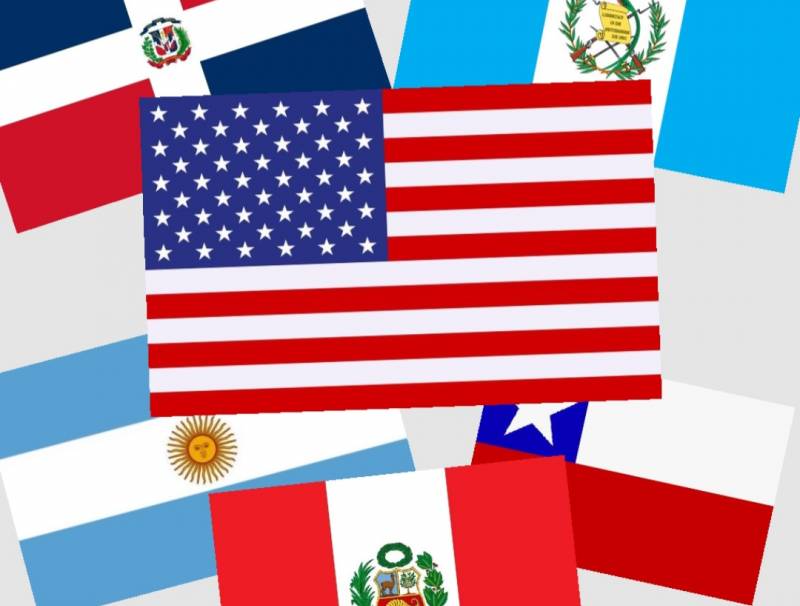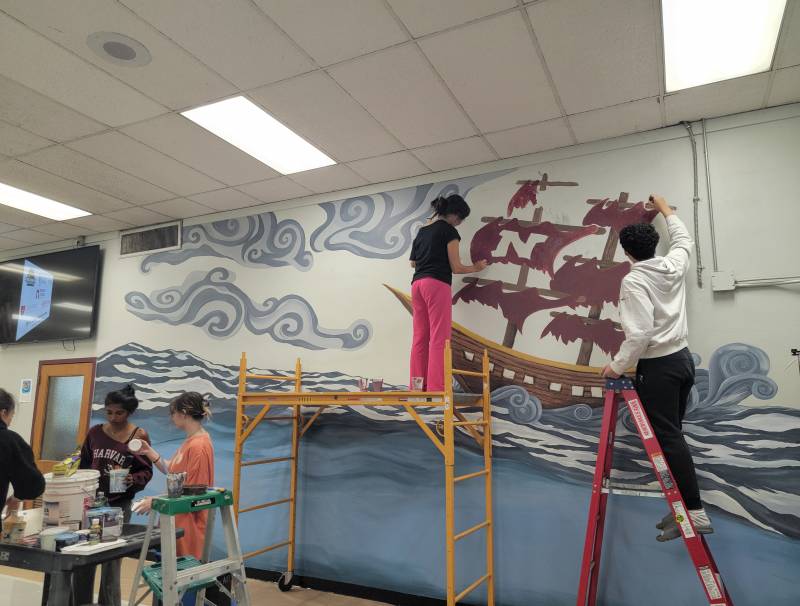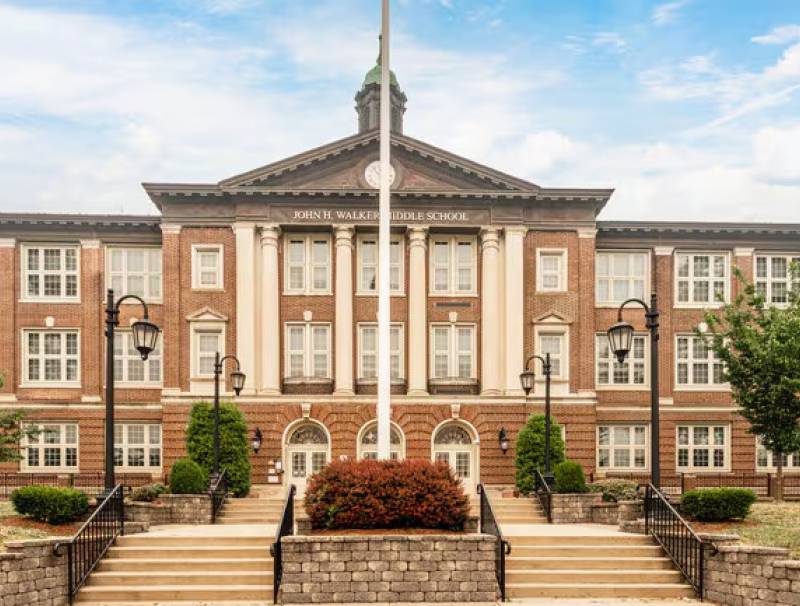America Has Abandoned the Women of Afghanistan
As the Americans leave Afghanistan, Afghan forces collapse and the Taliban again grab power, the United States is looking at more than $2 trillion spent on two decades of war that killed 47,000 Afghan civilians, 69,000 Afghan military and police and nearly 6,300 Americans, according to the Watson Institute for International and Public Affairs, and asking: What was it for?
The Taliban takeover seems likely to return Afghanistan to its pre-9/11 days of fundamentalism, oppression and fanatical misogyny. But one thing is different now: Afghanistan's women tasted freedom in the last 20 years, and took it upon themselves to rebuild their country.
Afghan women have been used as political pawns and treated more as symbols than humans by powerful people (mostly men) on all sides of the conflict -- too many of them American leaders who worked against women's rights at home but laid claim to feminism when it helped them justify a war, as well as the Afghan religious zealots who felt entitled to define "culture" so that it served their interests and wrote Afghan women out of their own stories.
Now, no one has more to lose than Afghanistan's women. And no one is owed a greater debt. They aren't going to get their deserved honor from the brutal and miserable fundamentalists taking over their country. Which is why the US and every other nation that participated in this war must open its doors and welcome whichever women, and their families, want to leave Afghanistan and have a shot at a safe life.
After the Taliban took control of Afghanistan in the mid-1990s, feminists the world over began sounding the alarm about the group, and pointing to the US's role in arming and funding the mujahideen, from which the Taliban sprung, in their war against the Soviet army.
A vicious dictatorship, the Taliban imposed one of the world's strictest regimes of gender apartheid, legally rendering women and girls as something less than human: banning them from leaving the house without a male guardian, closing girls' schools, barring women from work, shrouding them in long burqas with mesh cages over their faces to make them invisible and their bodies identical, one to the next.
Women were publicly humiliated and beaten if they didn't comply. With music, television, dancing and just about every form of human pleasure banned by this regime, the Taliban offered entertainment in the form of public executions carried out in a former soccer stadium.
The objections of feminists and human rights advocates were largely ignored by American politicians, and by Americans generally -- Afghanistan wasn't exactly a top news story or topic of interest.
After George W. Bush was put in the White House via a Supreme Court decision, he launched his own kind of war on women, scaling back women's rights at home and abroad through a slew of executive orders, judicial appointments and administrative rules that took aim at abortion rights and contraception access, eliminated equal pay initiatives and put a religious fundamentalist on an advisory committee that weighed in on reproductive health policy. Among other things, this notorious appointee opposed making emergency contraception more accessible and wrote a book recommending prayer as a treatment for PMS.
Bush was no friend to feminists. And so it was jarring, by the fall of 2001, to hear him, his administration, and his conservative, anti-feminist Republican Party co-opting the language of feminism as an adjunct to the justification of the post-9/11 invasion of Afghanistan.
It was clear even then that Republicans were largely anti-feminists, with many feigning concern for women in blue burqas while fighting against women's rights across the rest of the world. "Undermining the reproductive freedom essential to women's health, privacy and equality is a major preoccupation of (Bush's) administration -- second only, perhaps, to the war on terrorism," The New York Times editorial board wrote in 2003. But freeing Afghan women nevertheless became a rallying cry, including on the right, where hostility to women's rights at home remained red-hot.
Afghan women did more than their part to secure their own freedoms. Even during the dark days of the Taliban, Afghan feminists were risking their lives to educate Afghanistan's daughters, protect victims of domestic violence and child marriage and press for a little more independence. When the Taliban fell, those same women's rights activists could finally do their work above ground -- although still at great personal risk from the religious extremists who routinely assaulted and assassinated them.
On the promise of expanded opportunities and a hand in building their country's future, girls surged into schools and women flooded into the workforce and even into politics.
Now, we're seeing just how paper-thin the American commitment to Afghan women's rights truly was. While American leaders continue to pal around with profoundly sexist governments, including notorious human rights abuser Saudi Arabia, the women who worked so hard in the service of Afghanistan's future are facing a return to a misogynist authoritarian regime, where feminists are enemy number one, members of minority groups are bracing themselves for violence and girls' futures are foreclosed upon from birth.
"I'm going to say -- really -- shame on you," Afghan women's rights Mahbouba Seraj told a newscaster for NPR in mid-August. "I'm going to say to the whole world: shame on you."
Fawzia Koofi is one of the brave feminists who risked literal life and limb to fight for women and girls under the Taliban regime and to improve her country afterward. Koofi, a target of multiple Taliban assassination attempts, worked to secretly educate girls in her community before serving in parliament from 2005 to 2019 and then headed to peace talks with the Taliban in anticipation of the American withdrawal.
This is a woman who represents the best of Afghanistan -- the best of humanity. And yet, she told photojournalist Lynsey Addario that she's now in hiding, fearing for her life and the US is nowhere to be found. "No one is helping," Koofi told Addario. "Can you talk to the Americans?"
American leaders promised Afghan women safety and opportunity, and now we're leaving them stranded on airport runways as reports come in of the Taliban attacking and killing women in their homes. Burka sales are already surging in anticipation of a return to a regime of gender segregation, oppression-as-governance, and bloodthirstiness masquerading as morality. Feminists have had to take themselves out of public view and now hide
A forever war in Afghanistan was never good for the Afghan people. But neither are closed doors to those who don't want to live under the Taliban. That there was not already an adequate system in place for approving visas and evacuating all of the Afghan refugees who need safe harbor is another stain on America's reputation after our disastrous War on Terror.
But it's not entirely too late, at least not for everyone. Leaders in the US, the UK and Europe must immediately allow in as many Afghan refugees as are seeking safety. And the US should have Afghan women's rights advocates at the top of its refugee list.
These are women who served their country honorably, true patriots who I imagine will be heartbroken to leave home. But we should give them the option, and we should do it immediately. Safety is the least we owe the brave women's rights visionaries of Afghanistan. And America would be lucky to have them.









